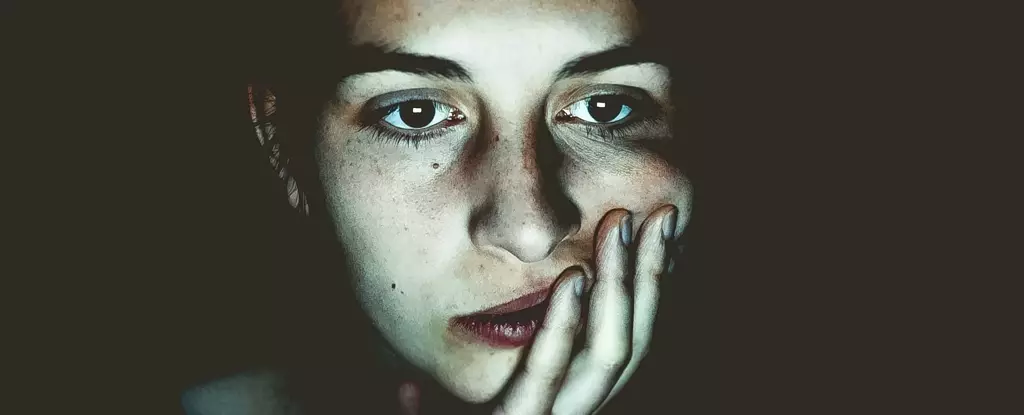In a world that thrives on extremes, it comes as no surprise that social media has given birth to bizarre trends, one of which is the “no-sleep challenge.” While many individuals can relate to the fatigue and grogginess that follows a poor night’s sleep, some take this to an alarming level. Recently, a 19-year-old YouTuber named Norme attempted to live stream a quest to break the world record for consecutive hours without sleep. His feat reached an astonishing 264 hours—just shy of the prior record but enough to garner attention and concern in equal measure.
Such challenges frequently draw both fascination and criticism. Spectators glued to screens might revel in the spectacle, yet they often overlook the repercussions of willingly sacrificing rest for entertainment. Despite Norme’s insistence on triumph, many expressed concerns about his overall health, reminding us that pushing the human body to such limits can lead to devastating outcomes.
Historical Context and Health Risks
There is a stark history to the concept of binge-sleeplessness. The longest verified record of sleep deprivation was held by Robert McDonald, who managed to stay awake for a staggering 453 hours in 1986. However, this record stands in stark contrast to modern understanding; in the late 1990s, Guinness World Records opted to cease monitoring such feats altogether due to the inherent dangers involved.
The consequences of prolonged wakefulness are anything but trivial. Sleep is crucial for physical and mental health, serving as a period of restoration for vital bodily systems. Research underscores that adults should aim for at least seven hours of continuous sleep to maintain health. Unfortunately, many fail to meet this objective, resulting in chronic sleep deprivation, which correlates with an array of serious health complications, including depression, obesity, and cardiovascular diseases.
Understanding sleep intricacies reveals its vital role in our lives. Sleep comprises multiple stages—each critical for various bodily functions. The initial phases activate the parasympathetic nervous system, which slows heart rate and lowers blood pressure, while the REM stage enhances cognitive abilities, such as memories and creativity. Even moderate disruptions, like caffeine or alcohol consumption, can seriously compromise this complex cycle, leading to degraded performance during waking hours.
Sleep deprivation is categorized as either acute or chronic. Acute deprivation, occurring over days, can yield dramatic impairments. Evidence shows that just 24 hours without sleep can result in cognitive decline equivalent to being above the legal limit for alcohol consumption. Accompanying this are physical manifestations such as puffy eyes and mood swings. As sleeplessness extends, its effects intensify, transforming into profound psychological disturbances, including hallucinations and feelings of detachment from reality.
The physiological and psychological demands of sleep deprivation unfold significantly over consecutive days. On the second day, the urge to sleep becomes almost unbearable, manifesting as “microsleeps”—brief, involuntary bouts of resting that last around thirty seconds. Physiological changes also exacerbate health risks, heightening inflammation and crippling the immune system.
By the time the body crosses into multiple days without rest, symptoms evolve alarmingly. Individuals might experience severe cognitive deficits alongside psychological share of psychosis—making mundane tasks feel monumental and reality distorted. Consequently, the treatment and recovery from such deprivation can vary widely. Some may recuperate with a single, restorative sleep, while others might take days or weeks to regain their previous functioning levels.
Regrettably, the phenomenon of sleep challenges tends to overshadow the critical importance of healthy sleep habits. Sleep is not a luxury but a necessity, something health professionals emphasize frequently. Shift work poses a notable risk, often robbing individuals of necessary rest and diminishing overall life expectancy. Research consistently illustrates that inadequate sleep is not only detrimental to quality of life but also contributes closely to mortality risk.
Conversely, oversleeping has also been found to carry health risks, emphasizing the need for balance. Instead of participating in reckless social media escapades that encourage sleep deprivation, individuals should prioritize sleep hygiene practices that enable restful, restorative sleep. Establishing a bedtime routine, reducing screen time before sleep, and creating a comfortable sleep environment are all steps toward achieving the ideal seven to nine hours of sleep.
In a society enamored with records and extremes, understanding the biological necessity of sleep must take precedence over chasing fleeting fame through reckless challenges. Investing in quality sleep yields not just health benefits, but also boosts productivity, emotional well-being, and cognitive function. As we move deeper into a fast-paced, demanding world, recognizing the value of restorative sleep stands as one of the most prudent decisions we can make for our long-term health and wellness. Avoid the challenges, rest well—the body will thank you for it.


Leave a Reply